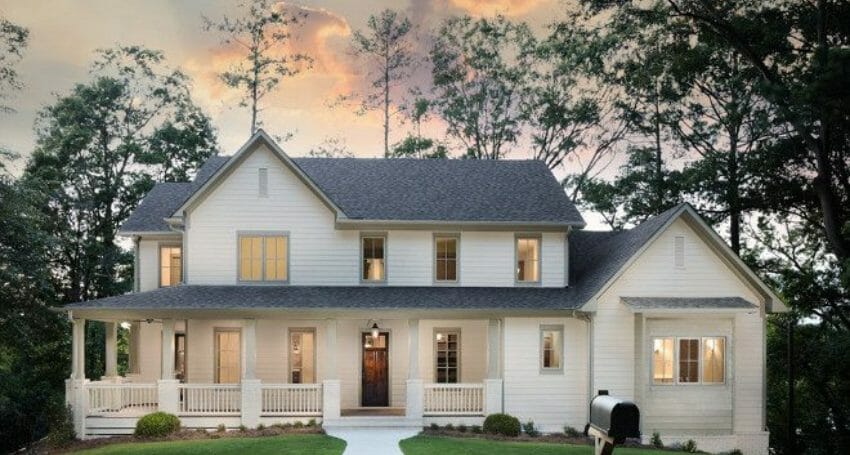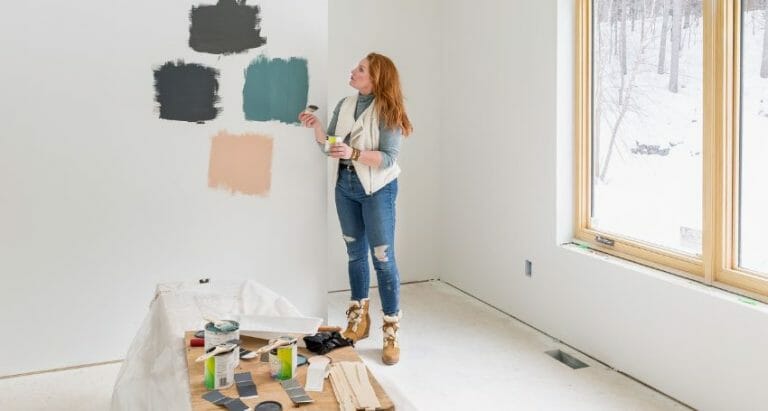Choosing the right exterior paint color for your home can be exciting and daunting. While the opportunity to imprint your style is thrilling, the sheer volume of options can be overwhelming. This article offers key insights on picking exterior paint colors, ensuring that your exterior house color reflects your personality and complements your home’s architecture.
Factors to Consider When Choosing Your Exterior Paint
There are many elements to consider when choosing exterior paint colors for your home. A harmonious color scheme can amplify your home’s visual appeal, boost its value, and enhance its charm. Here are some key considerations.
Your Home’s Architecture and Age
The architectural style and the period in which your home was built can offer a natural guide for choosing paint colors. For instance, a Victorian home might call for a complex color palette, whereas a modern home may look best with a more minimalistic, monochromatic scheme.
The Landscape and Neighborhood
Take into account the surrounding environment and the neighborhood’s color palette. Choosing a color to match or complement the local context can help your home blend seamlessly into its surroundings.
Your Home’s Exterior Materials
If your home has a brick exterior or stone detailing, use these as the starting point for your color scheme. Opt for a body or field color that complements these unchangeable aspects of your home’s exterior.
Crafting Exterior Paint Color Combinations
When creating your color scheme, consider the classic three-color combination. This includes the field color (main color), accent color (for doors, shutters, and small areas), and trim color (for window and door casings, roof edging, etc.).
The Color Wheel as a Guide
Utilize a color wheel to help you choose a harmonious color scheme. Colors next to each other on the wheel, such as blue and green, offer a more relaxed and casual look. Contrasting colors, such as blue and yellow, make a bolder statement.
Consider Light and Dark Shades
Remember, exterior colors appear different under sunlight than on a paint chip in a store. Light colors can make your home seem larger, while dark shades can make it appear smaller but more substantial.
Don’t Forget the Accents
Accent colors can bring your exterior color palette to life. Use them to highlight architectural features or add a splash of an unexpected color. Be cautious not to overdo it, as too many colors can overwhelm the eye.
Tried and Tested Exterior Paint Color Schemes
If you’re unsure about picking the right exterior paint color, drawing inspiration from tried and tested exterior paint color schemes can be helpful. Here are a few color combinations:
Earthy Colors
If your home is in a natural setting, consider an earthy color palette, such as moss green, taupe, or burnt sienna. These colors can help your home blend beautifully with the landscape.
Warm Colors
Warm colors like red, orange, and yellow can create a welcoming facade. However, these specific colors are bold and should be used sparingly.
Cool Colors
Shades of blue and grey can evoke feelings of tranquility and peace. These colors can be especially effective for homes in beach or coastal areas.
Wrapping It Up: Choose a Slightly Different Color
In the end, choosing exterior paint for your home should reflect your aesthetic. Don’t be afraid to pick a little out-of-the-ordinary color. Remember, the color will look brighter and more intense on your home than on a small paint chip, so choose a slightly lighter or less intense color than you initially wanted. Finally, always test your color choices. Paint large swatches on your home’s exterior to see how the colors appear in different lighting conditions and times of day. With these tips for choosing exterior paint colors, you’re on your way to creating a stunning exterior color palette that enhances your home’s beauty and reflects your style. Happy painting!





